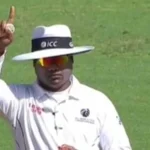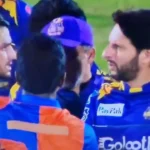
Coaches are the metaphorical backbone of a player’s body. He is the one who pushes his players to teach a point of the epitome of success and drives bum towards working harder on his skills. Every such coach was once a player himself and knows the path they walked on. The ingredient to become a good coach does not always need him to be a great player, a player who has seen enough hardships and struggles in his way to the top can guide another in the same position much easier than someone who made it easier. So today we will be talking about players not so special during their career but emerged as successful coaches post-retirement.
The first name in the list is the former Zimbabwean cricketer, Duncan Fletcher. He was a left-handed batsman and a right-hand fast-medium bowler with an orthodox action. He was not a very influential player and played only 6 ODI matches in national colors. He scored 191 runs in those matches with an average of 45 and two half-centuries. He was never given a chance in Test cricket for his country. Contrary to this was his coaching career where he coached England in the 1997-2007 decade and is credited with the revival of English test cricket at the start of the 2000s and famously guided them for the Ashes Victory. Later he famously became the coach for the Indian team on 27 April 2011 immediately after the famous World cup 11 win under the supervision of Gary Kirsten. He had very interesting figures coaching India with the team winning eight consecutive series home and away including the Champions Trophy 2013 but his tenure ended after the 2015 WC semi-final loss and was replaced by Anil Kumble.
The next in the list is Anshuman Gaekwad, a former right-handed batsman, and a right-arm off-break bowler. He played for than 40 tests and 15 ODI’s and was known for his defensive mindset especially in the test format and was named “The great wall”. In June 2018, he was awarded the Lifetime Achievement Award by the Board of Control for Cricket in India (BCCI). It was during his tenure that Anil Kumble took 10 wickets versus a prominent Pakistan team. He was given the coaching duties for the Indian team twice, once during 1997-1999 and later for a few months in 2000 before getting succeeded by John Wright. Next up is Bob Woolmer. This English all-rounder played some 19 test matches and 6 ODIs before moving on to coach South Africa, Worcestershire and very popularly the Pakistani team. During his tenure of coaching England, he witnessed Brian Lara’s famous knock of 501 against Durham in 1994 before moving to coach Pakistan. India had defeated their arch-rivals fiercely due to which Miandad was sacked immediately and Woolmer took his place as the coach. Within the next few years Pakistan defeated England , won the ODI series 4-1 against India. In 2006 he was forced to defend himself as under his reign the Pakistani team was accused of ball-tampering. He guided the Pakistani team to the final of the ICC T20 WC 2007 where they were defeated in the finals. In 2007, the day after Pakistan was knocked out of the 2007 World Cup, Woolmer was mysteriously found dead in Jamaica which was suspected to be a heart attack but the police reopened the case and it was seen from the point of a murder.
Next up is Dav Whatmore, who was an Australian right-handed batsman who played seven test matches and a few ODI’s at a below-par batting average with no major player achievement other than the two half-centuries in test cricket. First, he coached Sri Lanka in two different spells during the nineties and during his reign, the Lankans lifted the World Cup ’96 trophy which was major merit for him. Later he coached the Bangladesh team transforming them from underdogs to a team which did not upset but defeat the big teams like Australia, South Africa on the international stage. They famously defeated India in the group stage of WC 2007 under his supervision. Later he went on to coach teams like Pakistan, Zimbabwe and the IPL team Kolkata Knight Riders without much success and most recently became the head coach of the Singapore National Team.
Next up is John Buchanan, an Australian cricketer who never played a single International match in Test or ODIs for the national team. His numbers in the first-class cricket were average and not much impressed with a dismal average of 12.30. But as soon as he took up to coaching fate changed and in 1999 was made the Coach of the Australian cricket team. The Australian team went on a new level of success under his supervision when he became the first coach to have a team win 16 consecutive test series and 23 consecutive ODI series with total domination in the 2001-02 Ashes and also lifting the World cup 2003. At the end of 2006, he carried the team to yet another Champions trophy victory and won the 2007 cricket World cup which was Australia’s third consecutive WC. He also coached the IPL team KKR in 2009 but his controversial decisions raised eyebrows among the Indian Heavyweights and he was soon sacked after the team’s dismal show in that edition of the IPL. He also served as the consultant for the English team and later in 2011, Buchanan was appointed to the role of Director of Cricket for New Zealand Cricket in May 2011 and one of his controversial decisions include giving the captaincy of the National team to Ross Taylor over the most likely Brendan Mccullum due to which he had to later resign from his position.
Another of such kind was Sridharan Sriram, a former left-handed batsman for the Indian team who had a short international career of 8 ODI matches scoring just 81 runs with only a single half-century. He was prolific in the first-class cricket tho scoring 1075 runs in the Ranji Trophy for Tamil Nadu in the 1999-2000 season earning the Indian cricketer of the year back then. He later took up to coaching of the Australia A team that toured India. He soon got an upgrade and managed to coach the Australian National team when they toured Bangladesh in 2015. He later moved on to be the batting coach of KXIP and the bowling coach of RCB and did well in his tenure as their respective coaches. One more coach of the IPL fame is Tom Moody, who is a former Australian all-rounder having played 8 tests and 78 ODI’s with 2 centuries and 3 half-centuries. Moody post-retirement has served as a director of cricket with Worcestershire and later coached the Sri Lankan national team too where he led them to the final of the 2007 cricket world cup. He coached the KXIP team in the inaugural year of IPL and currently is the head coach of Sunrisers Hyderabad who has been doing amazingly well under his leadership managing to reach the top 4 3 out of 4 times and even winning the 2016 title comprehensively. He also coached the PSL team Multan Sultans and did pretty well there too.
All this proves how you don’t always need to be a great player to make a great coach. You must have faced the hardships yourself before guiding someone else who is on a similar path. Coaches remain the most crucial role in a team as they decide the tone of play for the players. The experience of these professionals is always a boon for the youngsters who aim big on the Cricketing field and we have seen many examples of the fact this proving that the legacy of coaches is here to stay.
STAY TUNED FOR MORE




